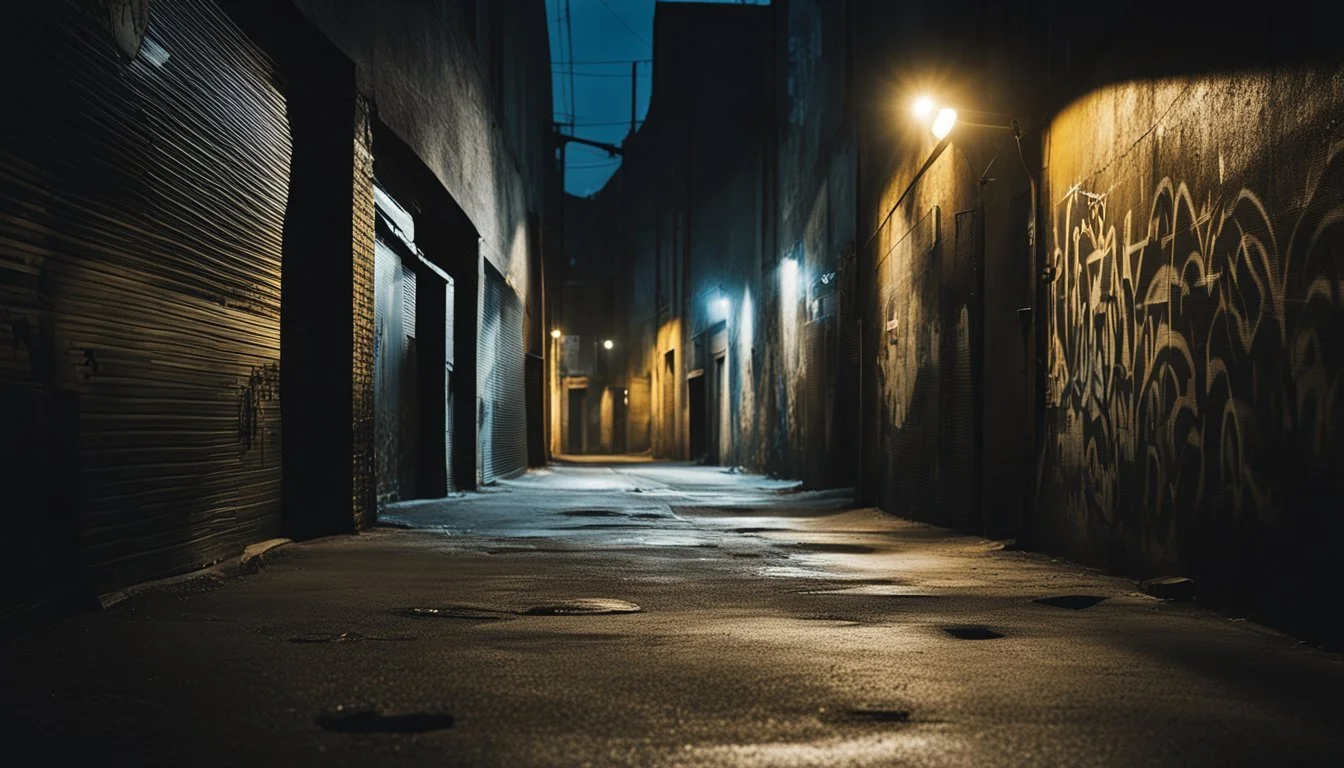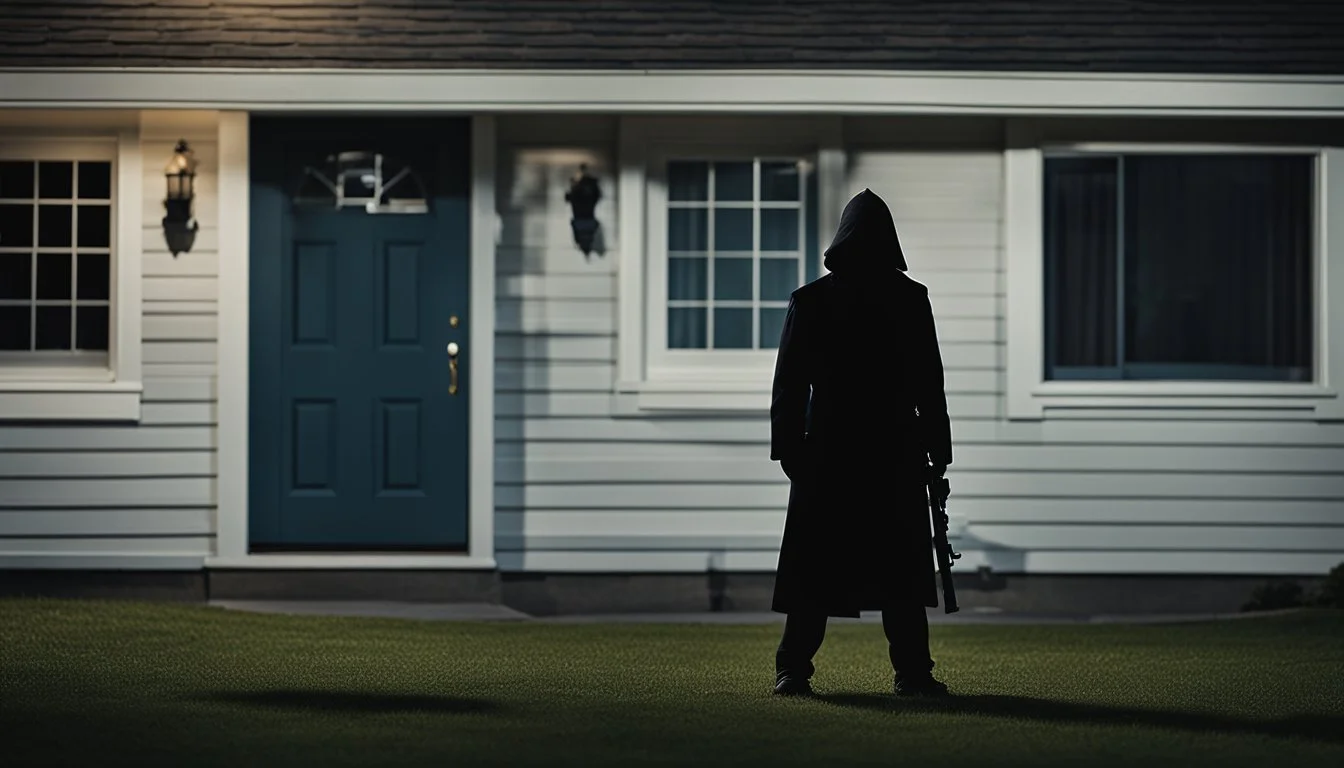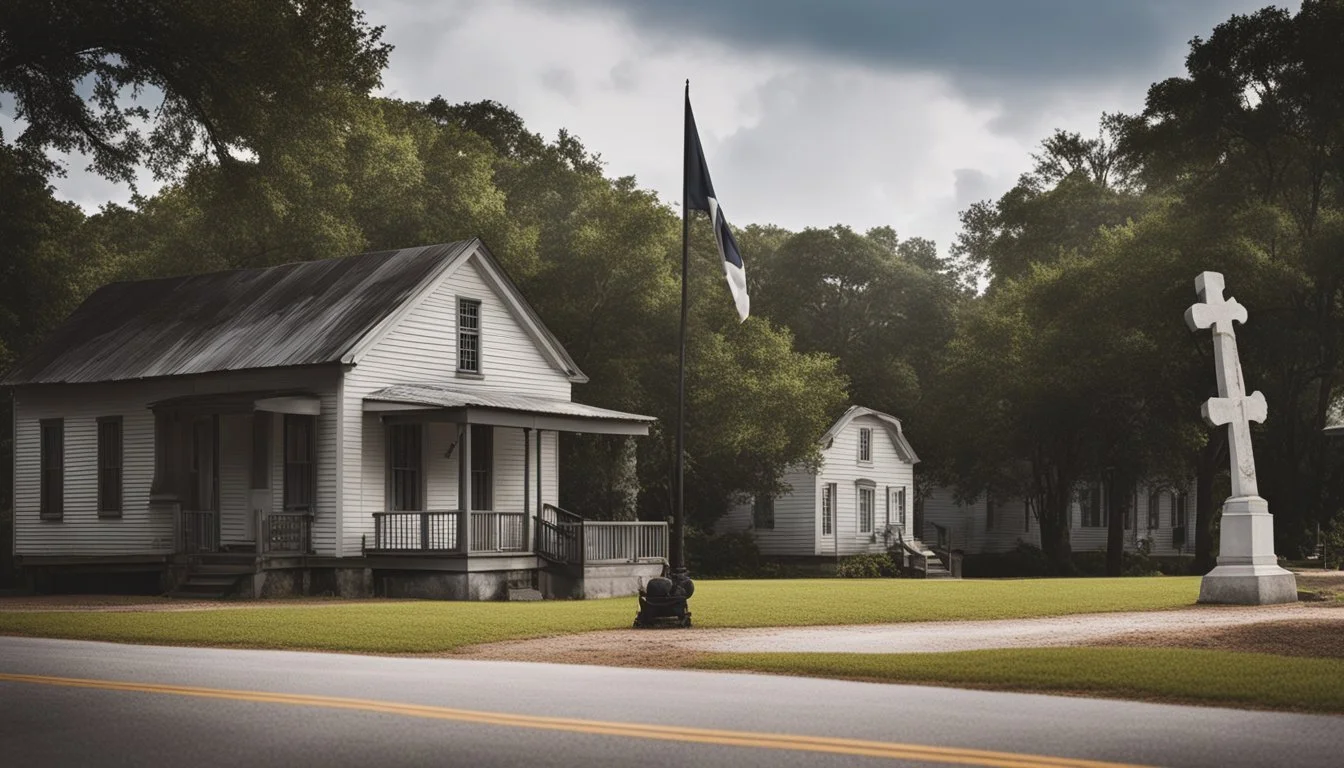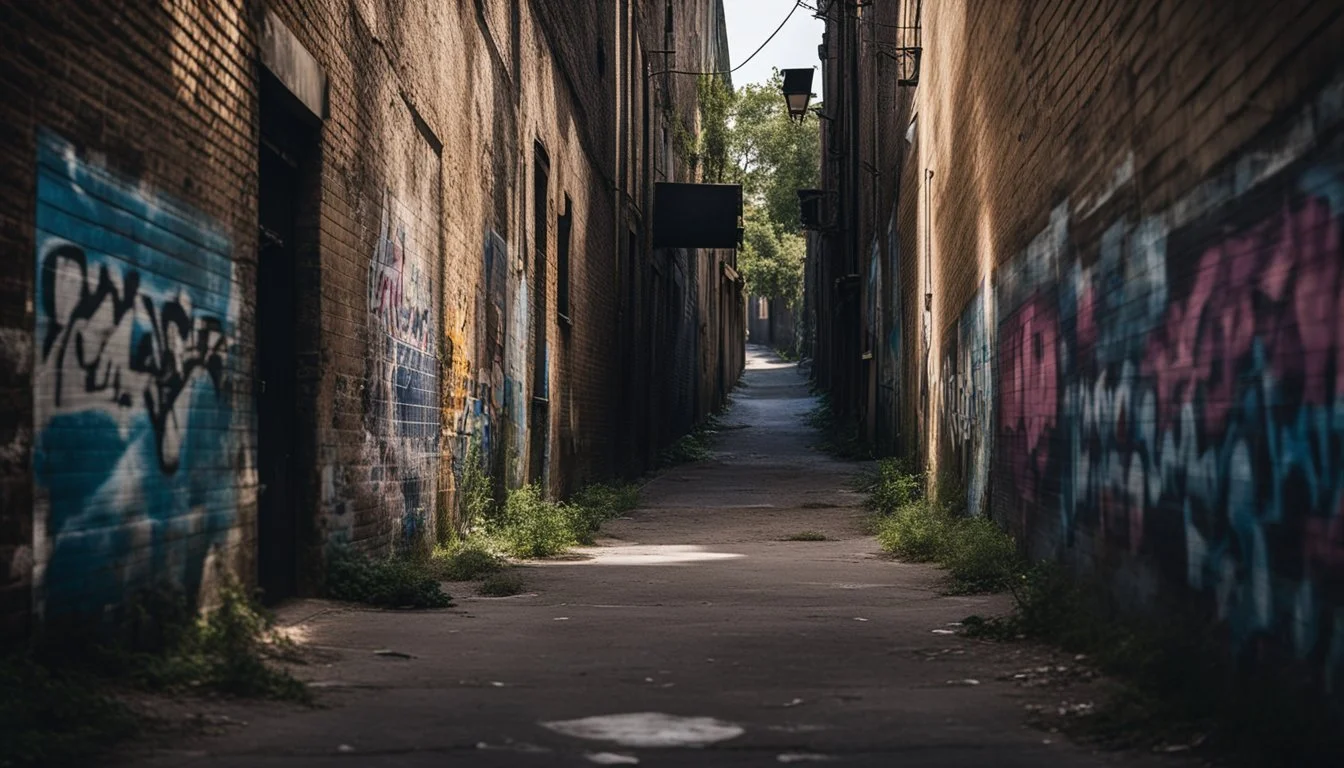6 True Crime Documentaries About Hate Crimes in South Carolina
Compelling Cases to Watch
South Carolina has been the scene of several notable hate crimes, which have left lasting impacts on its communities. These tragic events have compelled storytellers and filmmakers to produce documentaries that explore the origins, consequences, and ongoing struggles related to hate crimes in the state.
This article highlights six true crime documentaries focused on hate crimes in South Carolina, offering a deep dive into these chilling incidents and the fight for justice. By examining these impactful stories, viewers can gain a deeper understanding of the social and legal challenges faced by the victims and their families.
1) Remembrance: The Victims of the Neo-Nazi Church Shooting
The Charleston church shooting, an anti-black mass shooting, occurred on June 17, 2015. Nine African Americans lost their lives during a Bible study session at Emanuel African Methodist Episcopal Church.
Senior Pastor and state senator Clementa C. Pinckney was among the victims. His leadership and dedication to his community were widely respected and cherished.
Another victim, Cynthia Hurd, worked at the Charleston County Public Library for over 30 years. She was known for her commitment to literacy and education.
Sharonda Coleman-Singleton was a high school track coach and reverend. She was deeply involved in her community, inspiring many through her work.
Tywanza Sanders, a recent college graduate, was pursuing a career in business. His selflessness was evident as he tried to protect his aunt during the attack.
Rev. Depayne Middleton-Doctor had a history of helping others through her work in education and community service. Her warmth and generosity were well-known.
Susie Jackson, the oldest victim, was a longtime church member. Her dedication to her church family was unwavering.
Ethel Lance worked at the church for over 30 years, taking great pride in her role. Her friends and family remember her as a caring and loving person.
The legacies of these victims highlight their contributions and the love they shared with their communities. Their lives continue to inspire and remind of the work still needed to combat hate.
2) Silenced Voices: The Story of Anthony Hill
"Silenced Voices: The Story of Anthony Hill" delves into the tragic events surrounding Anthony Hill, an unarmed African-American man suffering from mental health issues.
Anthony Hill was shot and killed by police officer Robert Olsen in March 2015 in South Carolina.
The documentary captures the intense emotions and legal battles that followed Hill's death.
The film provides an intimate look into the personal life of Anthony Hill, highlighting his struggles with bipolar disorder and his service in the U.S. Air Force.
Through interviews with his family, friends, and legal experts, the documentary seeks to uncover the deep-seated issues of racial bias and mental health within the law enforcement community.
The gripping narrative explores the impact of Hill's death on his community, and the broader implications it had on the national conversation about police brutality and mental health crises.
The documentary leaves viewers questioning the effectiveness of police training and the need for better mental health interventions.
To learn more about the documentary, visit its IMDB page. (2024)
3) Fatal Friendship: The Murder of Sean Kennedy
Sean Kennedy was a young gay man living in Greenville, South Carolina. In May 2007, a brutal attack outside a local bar led to his tragic death. Sean's friend pointed out that he was targeted because of his sexual orientation. The case quickly highlighted the pressing issue of hate crimes against LGBTQ+ individuals.
Stephen Andrew Moller, a 19-year-old, confronted Sean, calling him derogatory names. He punched Sean so hard that he fell and hit his head on the pavement. Sean slipped into a coma and succumbed to his injuries 17 days later.
The legal proceedings received considerable attention. Despite the severity of the crime, Moller was initially charged with involuntary manslaughter and received a minimal sentence. The incident spurred activism for stronger hate crime legislation in South Carolina.
Sean's mother, Elke Kennedy, became an outspoken advocate. She founded the organization Sean's Last Wish to raise awareness about hate crimes and push for legal reforms. This documentary sheds light on the legal and social challenges surrounding hate crimes in the state.
More information can be found on IMDB for detailed insights about the story.
4) Hate Surges: The Killing of Medgar Evers
The story of Medgar Evers is a stark reminder of the violent resistance to the Civil Rights Movement in the United States. Evers, a prominent civil rights activist, was assassinated on June 12, 1963, in Jackson, Mississippi. This documentary explores the events surrounding his murder and the subsequent fight for justice.
Medgar Evers worked tirelessly as the NAACP’s field secretary, advocating for the rights of African Americans in the segregated South. His assassination by Byron De La Beckwith, a member of the Ku Klux Klan, underscores the deep-rooted hatred and danger faced by civil rights workers during this era.
The documentary highlights not only the tragic event but also Myrlie Evers' relentless pursuit for justice over three decades. Her efforts led to the conviction of De La Beckwith in 1994, showcasing perseverance against a backdrop of systemic racism and judicial inertia.
Narrated by civil-rights pioneer Julian Bond, the program features interviews with key figures, including Myrlie Evers. These personal accounts provide a powerful and emotional narrative, enhancing the historical context of the film.
Viewers gain a comprehensive understanding of the societal tensions and the high stakes involved in the fight for equal rights. It underscores the personal sacrifices made by those who dared to challenge the status quo during one of America's most turbulent periods.
For further information, refer to the IMDb page on "Southern Justice: The Murder of Medgar Evers" (1994).
5) Crossfire: The Lives Lost in the Upstate Hate Incident (2023)
Crossfire: The Lives Lost in the Upstate Hate Incident (2023) explores the tragic events surrounding a brutal hate crime that shook the communities in the Upstate region of South Carolina.
Through interviews with families, friends, and investigators, the documentary paints a vivid picture of the victims' lives and the impact on their communities.
This gripping film delves into the motivations behind the crime, examining societal issues and prejudices that contributed to the incident. It highlights both the resilience and the heartbreak of those affected.
For more information on Crossfire: The Lives Lost in the Upstate Hate Incident (2023), visit IMDB.
6) Just Another Casualty: The Case of Michael White
In 2006, Michael White, a young African American man, was brutally attacked in Columbia, South Carolina. The attack, motivated by racial hatred, resulted in White's death. The documentary covers the events leading up to the crime, the investigation, and the community’s response.
The film delves into the local impact, highlighting the tensions between racial communities. Interviews with family members, law enforcement, and civil rights activists provide a multi-faceted view. The documentary emphasizes the need for justice and reforms to address hate crimes.
Michael White's case remains a pivotal example of racially motivated violence in the South. The film not only presents the facts but also strives to honor White's memory and fight for equality. This documentary was released in 2018.
For more information, visit the Wikipedia page on the documentary.
Understanding Hate Crimes
Hate crimes are criminal acts motivated by bias against a person’s race, religion, gender, sexual orientation, or other characteristics. These crimes can have severe legal repercussions and emotional impacts on communities.
Definition and Types of Hate Crimes
A hate crime is a criminal act driven by prejudice against specific characteristics of the victim. These crimes can range from assault, murder, and vandalism to threats and harassment.
Types of hate crimes include:
Racial hate crimes: Based on the victim's race or ethnicity.
Religious hate crimes: Target individuals due to their religious beliefs.
Gender-based hate crimes: Focus on the victim’s gender or gender identity.
Sexual orientation hate crimes: Target individuals for their sexual orientation.
Other characteristics: Disability, nationality, or age can also be bases for hate crimes.
These crimes are not only offenses against individuals but also instill fear in the broader community, thereby disrupting social harmony.
Legal Framework and Penalties
In the United States, the Matthew Shepard and James Byrd Jr. Hate Crimes Prevention Act of 2009 is a significant federal law addressing hate crimes. This legislation broadens the definition of hate crimes and includes crimes motivated by race, religion, gender, sexual orientation, and other characteristics.
While laws vary by state, penalties for hate crimes generally include enhanced sentencing. For example, assault motivated by racial bias can result in harsher penalties than a similar crime without this motive.
South Carolina, unlike most states, does not have a specific hate crimes law. This has led to calls for legislative action to address the increasing frequency of these crimes within the state. Efforts continue to make South Carolina the 49th state to pass such legislation.
Historical Context of Hate Crimes in South Carolina
South Carolina's history with hate crimes reveals a trajectory shaped by significant events and lasting impacts on its communities. This section delves into key historical happenings and the profound effects on the state's residents.
Significant Historical Events
The state has witnessed numerous hate crimes, notably impacting marginalized groups. The 2015 Charleston Church shooting, where nine African Americans were killed, catalyzed national conversations on race-based violence.
Additionally, the shooting of a transgender woman, as charged in recent cases, underscores the persistent targeting of LGBTQ+ individuals. The push for legislative changes, like the "Clementa C. Pinckney Hate Crimes" bill, illustrates ongoing efforts to address and penalize these crimes systematically.
Impact on Communities
The impact of hate crimes stretches beyond the immediate victims, affecting the broader social fabric. Increases in reported incidents, as highlighted by the FBI, indicate a growing threat to community safety and cohesion.
Such crimes perpetuate fear among minority groups, leading to social fragmentation. Efforts by advocacy groups and legislative bodies aim to foster a more inclusive environment, striving to protect vulnerable populations and reduce the incidence of hate-related violence.
Psychological and Sociological Impacts of Hate Crimes
Hate crimes have profound psychological impacts on victims and communities, causing trauma and long-lasting mental health issues. They also lead to broader societal consequences such as increased fear and division.
Victim and Community Trauma
Victims of hate crimes often suffer severe psychological effects. These can include depression, anxiety, and post-traumatic stress disorder (PTSD).
The mental health impact is not limited to the direct victims. Witnesses and community members may also experience increased anxiety and a sense of vulnerability.
Communities targeted by hate crimes frequently face long-term emotional and psychological damage. Feelings of anger, shame, and helplessness pervade affected communities, disrupting social harmony and cohesion.
Societal Consequences
The broader societal consequences of hate crimes include increased division and mistrust among different social groups. Hate crimes can exacerbate pre-existing social tensions, leading to elevated levels of hostility and segregation.
Public perception of safety and security is compromised, resulting in widespread fear and reluctance to engage with diverse communities.
Efforts to combat hate crimes require comprehensive strategies from policymakers and community leaders. These strategies include educational programs, community outreach, and mental health support services to foster unity and resilience.









